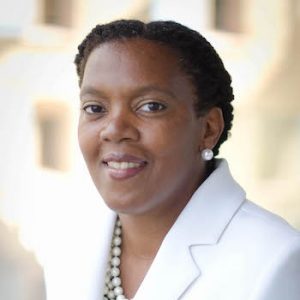
Un/Marked: Legacies of Empire and Colonial Education
In late May 2021, a shocking revelation made the news. The T’Kemlúps te Secwépemc First Nation announced that evidence was found using ground-penetrating radar of 215 unmarked graves of Indigenous children on the grounds of a former church-run residential school to which Indigenous children were sent as mandated by the Canadian government. Since then, hundreds of other unmarked graves of children and youth at other residential school sites have been found. These were educational institutions from which students emerged as “survivors” rather than “graduates.” They were institutions characterized as perpetuating “cultural genocide” aimed at wiping out Indigenous cultures, beliefs, and languages. The first opened its doors in 1828 and the last closed in 1996. The horrific findings at T’Kemlúps and other sites of former residential schools provided further evidence of the abuse suffered by generations of Indigenous children as documented in the Truth and Reconciliation Commission on Indian Residential Schools which ran from 2008 to 2015 in Canada. To lose one’s life as a student at an educational institution staffed by adults entrusted with care, many of whom were priests and nuns, is the ultimate in betrayal of trust.
The revelation of these deaths of Indigenous children and youth prompted me, as a religious studies professor, a woman of Caribbean heritage and descendant of enslaved Africans living and working in Turtle Island/North America, to reflect on the broader history of what “education” in the twenty-first century means and my role as an educator. Given the legacy of church-based institutions in the education of enslaved, indentured, and colonized peoples during the colonial era, emerging untouched as a disembodied learner is impossible. What challenges have we inherited as students and educators and what pedagogies can we bring to classrooms as correctives and alternatives, including systems of Indigenous knowledge outlawed during the colonial era? This is an enormous question a thorough answer to which is beyond the scope of this short reflection; however, daring to ask this question is necessary if as educators we are to confront with honesty and integrity the myriad ways in which educational institutions and processes, even those which are well-meaning and couched in terms signifying a commitment to equitable principles, have been complicit in colonial rule.
Throughout the British Empire, children and youth were subjected to disciplinary action under colonial rule. Canada’s colonial history as a settler colony in the British Empire and Caribbean nations as a former monocrop economy dependent on the production and sale of sugar and its byproducts are linked. Some children, at various times, were deemed by law and/or custom unmanageable, “truant,” “incorrigible,” “delinquent,” and were subsequently criminalized and in need of “reform,” “training,” or correction by some combination of discipline, punishment, and education. Training schools were instituted in the Caribbean beginning in the post-slavery era, primarily, though not exclusively, for male children and youth. In a Canadian context, as discussed in the documentary Born Bad (CBC, 2021), training schools were instituted in the early 1930s with the final one closing in 1984. These training schools, which predominantly affected white, working-class youth, were total institutions which were supposed to look after the educational and cultural needs of children and youth in a residential setting. The training schools were often located in small towns where children were removed from their families and home communities. In recent years, alleged abuses at former Canadian training schools have come to light with a class action lawsuit pending. In a Caribbean context there is evidence of a shift towards awareness and addressing of factors such as childhood trauma in the lives of children and youth in training schools.
What has become increasingly apparent over the last year is that even though unmarked, the burial places of the deceased Indigenous children and youth remained a part of the topography of the physical land and cultural landscape. Secrets of small towns and rural communities in which residential schools and training schools were located are now being revealed to a broader public. In effect, these sites are simultaneously unmarked and marked by their tangible links to individual families and communities.
The challenge for religious studies education is to come to terms, honestly, with the legacy of churches (in Canada, the United Church, Roman Catholic and Anglican), mandated by the federal government for over a century to carry out residential school education. The ways in which religious studies is taught could benefit from exploration of these colonial linkages between the Caribbean, Canada, the US, and other former British settler colonies such as New Zealand, Australia, and South Africa. Studying the impact of religious institutions in these geographically distant yet historically-linked areas would require a comparative approach anchored in the experiences of survivors and witnesses revealed through combined methods of historical and archival research and shared oral histories. This endeavour will require collaboration and fortitude but it is a necessary process and one that begins with individual reflections and actions of engaged educators.
For information about the Truth and Reconciliation Commission of Canada’s Calls to Action please see: calls_to_action_english2.pdf (gov.bc.ca).
For information on contemporary status of incarcerated youth in some English-speaking Caribbean countries see “The Status of Youth in Incarceration in the Caribbean” (2020): FreemonNunoKatz2020.pdf.
Leave a Reply